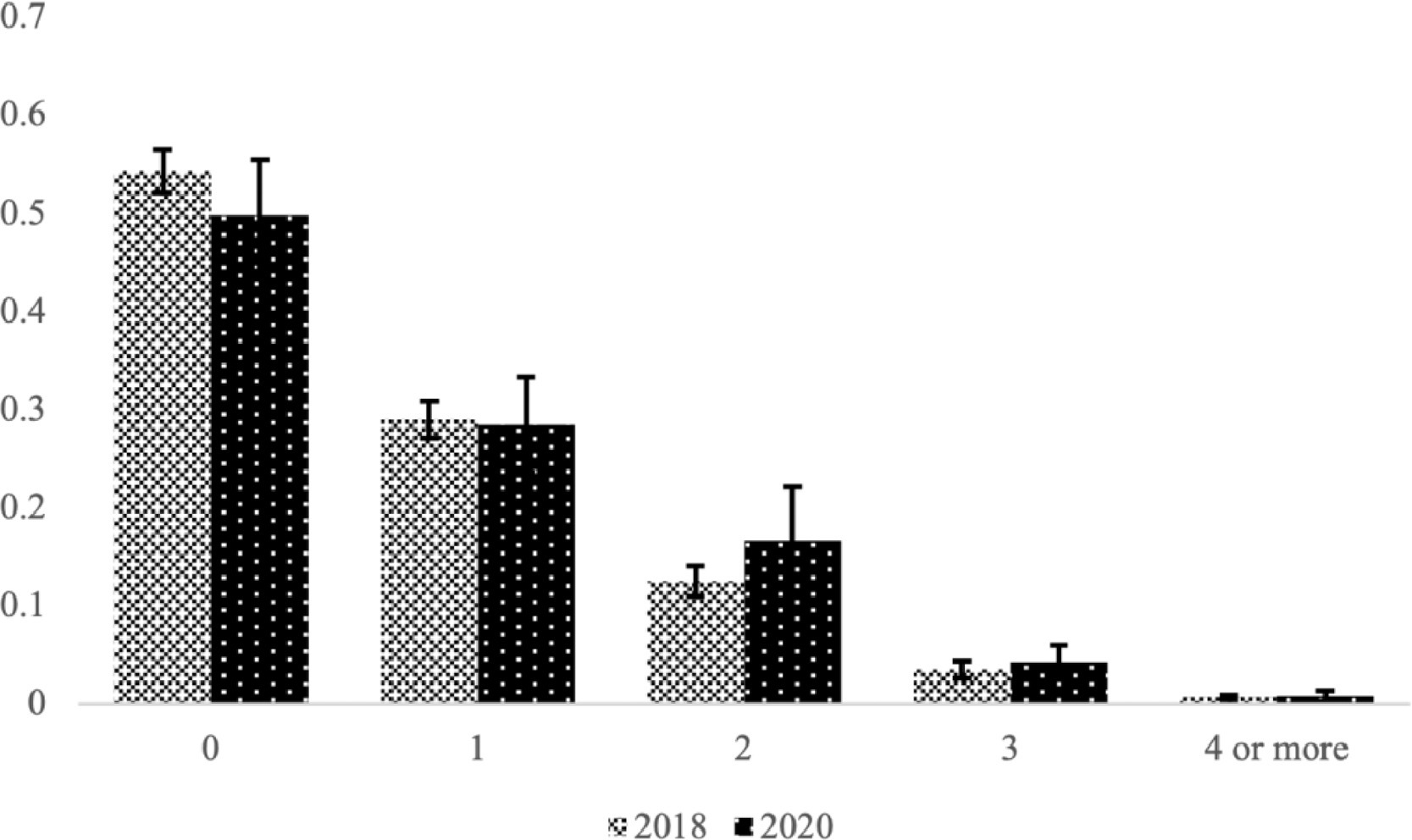Follow us on Telegram for the latest updates: https://t.me/mothershipsg
A study revealed that married couples in Singapore were having more sex during the circuit breaker period from Apr. 2020.
Data from the study also showed that this trend continued in June 2020, after the circuit breaker ended.
While an overall decline in sexual activity during the pandemic was observed in international studies, this study revealed that the frequency of sex among Singaporean couples increased.
The study, conducted by Lee Kuan Yew School of Public Policy (LKYSPP) Assistant Professor Tan Poh Lin, tracked the sexual activity of 409 married women in Singapore, and was published in the Journal of Sexual Medicine on Dec. 13, 2021.
The women were first surveyed in 2018 for another of Tan's papers, which studied stress, fatigue, and sexual spontaneity among married couples in a "high-stress society".
They were asked to complete similar surveys again in 2020, to examine the impact of the Covid-19 lockdown on changes in the frequency and patterns of sexual activity among married couples in Singapore
According to The Straits Times (ST), the study is the first local study examining the impact of the Covid-19 pandemic on married couples' sexual health.
Marital sexual activity more frequent and more flexible
Couples in Singapore had sex an average of 0.78 times a week in 2020, more than the average of 0.68 times a week in 2018, the study found.
Additionally, the percentage of couples who did not have sex at least once a week fell to under 50 per cent in 2020, compared to 54.3 per cent in 2018.
Tan observed that more participants were moving towards having sex twice a week or more, although the majority continued to have no sex or sex once a week in 2020.
 Participants' weekly frequency of sexual activity. Image via sciencedirect.com.
Participants' weekly frequency of sexual activity. Image via sciencedirect.com.
The study also suggested more flexible marital sex lives in 2020 as compared to 2018.
In 2018, there was a higher tendency for couples to have sex on weekends, while the days of sexual activity were more spread out throughout the week in 2020.
This suggested "more flexibility in the timing of sexual activity", according to the study.
Reasons for the changes
The study looked into the three potential factors that may have led to such changes, such as stress and fatigue, working from home, and marital satisfaction.
Work from home not significant factor
The study said it was surprising that the work-from-home arrangement was not a major factor behind the increased intimacy between couples, and only played a "limited role".
The easing of the circuit breaker in June 2020 did not lead to a drop in the frequency of sex, even as "significantly fewer couples" continued to work from home.
"Couples’ stay-at-home status was not associated with outcomes of interest", Tan added.
Stress and fatigue
Meanwhile, stress, fatigue, and marital satisfaction were found to be significant determinants of sexual activity and frequency among married couples in Singapore.
However, the study found that "mild to moderate levels of stress" corresponded with increased frequency of sex, while high or very low levels of stress corresponded with lower sexual frequency.
According to the study, there is "some evidence that stress from daily hassles are positively associated with sexual desire" and that "mild to moderate levels of stress may be more optimal for increased sexual frequency relative to either very low or high levels of stress."
More about the study
The women who participated in the study have been married for an average of six years, and they are either Singaporeans or are married to one.
The age of the participants were between 25 and 34. The average age of the participants was 30.49 when the study commenced in 2018, and in 2020, the average age was 32.46.
The participants were first interviewed in 2018 and they were asked to note down certain details, such as the dates they had sex and their average level of stress and fatigue, over the course of 14 weeks.
Similar questions were posed to the participants in May 2020 and June 2020.
Over 70 per cent of the women have at least one child aged six or younger, and more than 38 per cent of them earned S$4,000 or more a month.
Sexual frequency lower in Singapore
According to Tan, sexual frequency and satisfaction in Singapore are lower than international averages.
She said the frequency of sexual activity of the couples in her study was three to four times a month, as compared to an average of six to seven times a month for American couples under the age of 45.
Follow and listen to our podcast here
Top image via Ketut Subiyanto/Pexels
If you like what you read, follow us on Facebook, Instagram, Twitter and Telegram to get the latest updates.
